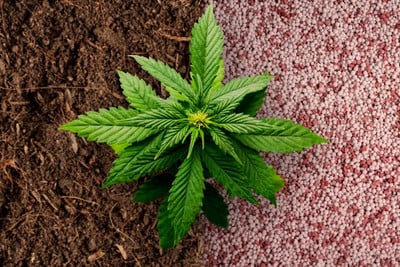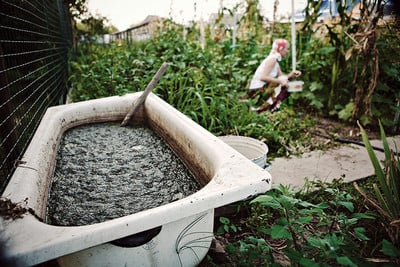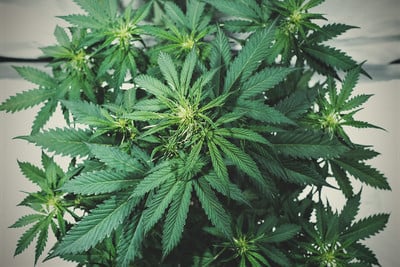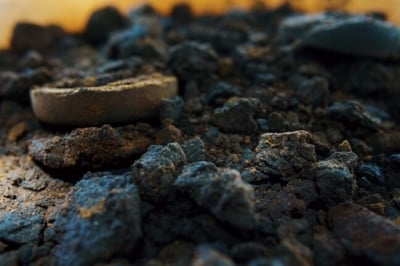.

How To Use Manure To Grow Cannabis Plants
What if we told you one of the best ways to boost the fertility in your garden was to purchase a pile of sh*t? That's right, manure from several species of animals can enrich soil, improve harvests, and make your cannabis plants healthier. Manure not only contains key nutrients, but serves as a fantastic source of organic matter.
Contents:
To a gardener, soil health is everything. This vital growing medium contains all of the nutrients, organic matter, and beneficial microbes that plants need to thrive. Many soil-centric cannabis growers go by the phrase “feed the soil, not the plants''. It turns out manure from several animal species benefits the soil in more ways than one. You might think this sounds like a great big pile of sh*t, but one of the best ways to keep your cannabis productive is to accrue poo.
Below, you’ll find out why manure plays such an important role in the garden, how it can make your weed plants more productive, and the best manure for cannabis cultivation.
Why Use Manure To Grow Cannabis?
The autumn months are a busy time for any outdoor grower. Cannabis plants are nearing the end of the flowering phase, and many vegetable varieties are edging closer to harvest. As gardeners start to enjoy the fruits of their labour, their beds, patches, and containers begin to look a little empty.
Outdoor growers view the sight of bare soil as a reminder to feed this complex growing medium. Gardeners have different ways of going about this, but many opt for the tried and tested technique of spreading manure. Traditional growers prefer to till their beds and thoroughly mix the manure into the topsoil. Those following a “no-dig” or “no-till” approach simply mulch manure onto the surface, keeping the structure of the soil intact.
Benefits of Manure for Weed
Manure brings a host of benefits to the garden. Whether you’re growing high-grade ganja or tomatoes, you’ll find your soil and your plants benefit.
| Improves Soil Structure | First and foremost, manure greatly improves soil structure. Mulching with manure places a protective layer over the precious soil below. This casing reduces raindrop impact that would otherwise erode the soil. This aspect of manure works especially well for those growing on slopes. |
| Improves Water-Holding Capacity | By improving the structure of the soil, manure also improves its water-holding capacity. Not only does this mean that gardeners have to water less, but it helps to prevent water stress that can disrupt plant growth and even kill crops. |
| Feeds Beneficial Microbes | The organic carbon present in manure serves as an energy source for soil microbes. Feeding these microscopic populations has a massive knock-on effect on plant health. Many species of bacteria and fungi form a symbiotic relationship with plant roots. Some of them fix nitrogen and make it available to plants, and others break down organic matter into plant-available nutrients. |
| Offers Key Nutrients to Plants | Finally, manure serves as a source of key nutrients that plants need to grow and thrive, including nitrogen, phosphorus, potassium, and an array of micronutrients. Plants require nitrogen to build proteins and crucial enzymes. Manure contains organic nitrogen (a form of the element bound to organic molecules) that releases slowly over time. In contrast, the nitrate found in commercial fertilisers quickly dissolves into water and leaches out of beds. |
| Improves Soil Structure |
|
First and foremost, manure greatly improves soil structure. Mulching with manure places a protective layer over the precious soil below. This casing reduces raindrop impact that would otherwise erode the soil. This aspect of manure works especially well for those growing on slopes. |
| Improves Water-Holding Capacity |
|
By improving the structure of the soil, manure also improves its water-holding capacity. Not only does this mean that gardeners have to water less, but it helps to prevent water stress that can disrupt plant growth and even kill crops. |
| Feeds Beneficial Microbes |
|
The organic carbon present in manure serves as an energy source for soil microbes. Feeding these microscopic populations has a massive knock-on effect on plant health. Many species of bacteria and fungi form a symbiotic relationship with plant roots. Some of them fix nitrogen and make it available to plants, and others break down organic matter into plant-available nutrients. |
| Offers Key Nutrients to Plants |
|
Finally, manure serves as a source of key nutrients that plants need to grow and thrive, including nitrogen, phosphorus, potassium, and an array of micronutrients. Plants require nitrogen to build proteins and crucial enzymes. Manure contains organic nitrogen (a form of the element bound to organic molecules) that releases slowly over time. In contrast, the nitrate found in commercial fertilisers quickly dissolves into water and leaches out of beds. |
How Much Manure Does Cannabis Need?
The benefits of using manure in the garden are many, but how much should you spread? Initially, you need to aim somewhere in the region of 9–13kg per 9m².[1] This quantity will help you establish beds, feed your plants, and kickstart microbial activity. Use a lower amount for dense soil and a higher amount for loose soil. For very loose soil, use up to 2kg per 1m².
Once you’ve established beds and have a successful growing season or two under your belt, some of the most prominent voices within the gardening world call for a much more laid-back approach. The no-dig gardening pioneer Charles Dowding simply calls for a 2–3cm application of manure or compost each winter. Instead of tilling it in, he advocates for sheet mulching. By the time spring comes around, the elements will have transformed lumpy manure into a fluffy layer ready for planting.
Which Manure Is Best for Growing Cannabis?
There are plenty of different kinds of manure that benefit the garden and help cannabis plants reach their full potential. Each has a slightly different composition and its own advantages. However, there are a few factors that determine the quality of every type of manure. Before we delve into the differences between them, let’s explore some crucial points you need to keep in mind.
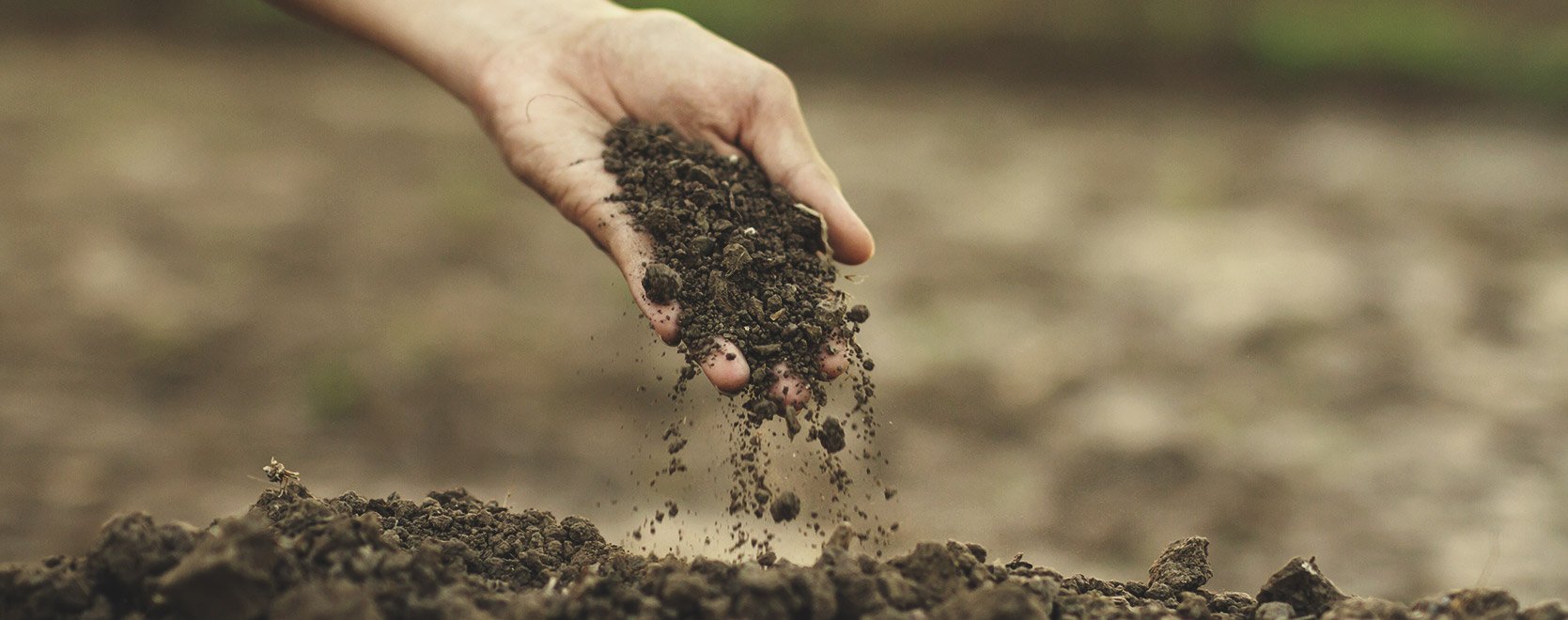
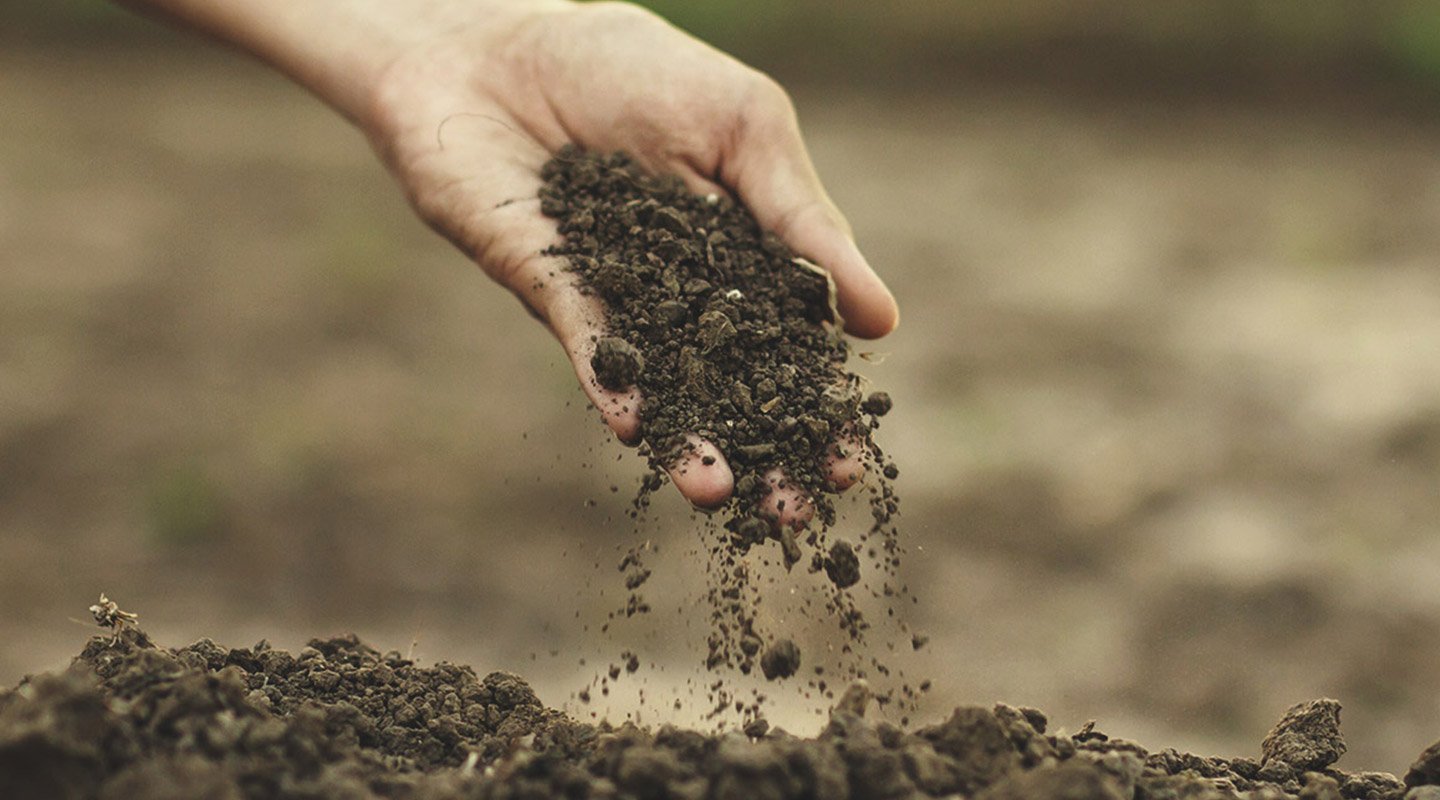
Avoid AP at All Costs
Have you heard of aminopyralid? Also known by the acronym AP, this herbicide often shows up in manure, and contaminated batches frequently destroy crops every year. If you know any avid gardeners or allotments holders, they can probably tell you a thing or two about this pesky chemical.
Farmers apply this selective broadleaf herbicide in pastures, where it kills pretty much everything apart from grass. As horses and cows chow down on the vegetation, they end up consuming this chemical. However, it passes through them intact and ends up contaminating their manure.
When gardeners spread contaminated material across their beds, they unknowingly invite a molecule that takes years to break down. Plants that grow in contaminated manure often display curled, yellow, and dead leaves, as well as poor germination rates.
With that in mind, try to source manure from trusted farms and suppliers. Read reviews online or ask those in the know to determine the best source near you. Some companies are also willing to distribute trial bags. Sow seeds that are fast to germinate, such as beans, into this material, and look for signs of AP before using it to grow your weed.
Only Spread Well-Rotted Manure
You should only ever dress your beds with well-rotted manure, with the exception of that derived from rabbits and alpacas (more on that below). Fresh or “hot” manure contains high levels of nitrogen, ammonium, and salts that can burn plants, especially young seedlings. If you can only source fresh manure, you’ll need to throw it onto your compost pile with equal parts wood chips, hay, or other material high in carbon.
This biomass will allow anaerobic bacteria to get a foothold, which will catalyse a thermophilic reaction that breaks down the manure into usable compost over several months. This level of heat will also help to kill off any seeds that passed through the animal's digestive tract. Use a compost thermometer and flip your pile when the dial reaches the red zone. Keep your pile moist, but not dripping wet. When you grab a handful and squeeze, it shouldn't leak water.
- Chicken Manure
Using chicken manure for cannabis is becoming more and more popular. Chickens are incredible creatures capable of playing a fundamental role within permaculture gardening systems. Their manure is high in nitrogen, phosphorus, and potassium. Of course, keeping your own chickens will offer a good supply of manure, along with high-quality eggs and a patrol of pest-eating birds. Chicken manure takes between 6–9 months to compost, so growers will need to plan ahead when considering this option.
If you don’t want to wait so long and need to add the nutrients contained in chicken manure, you can mix it with water in a 1:2 ratio and let it ferment for about four weeks in a closed barrel. Decant and dilute it with water in a ratio of 1:10 before use; otherwise, it will burn your plants.
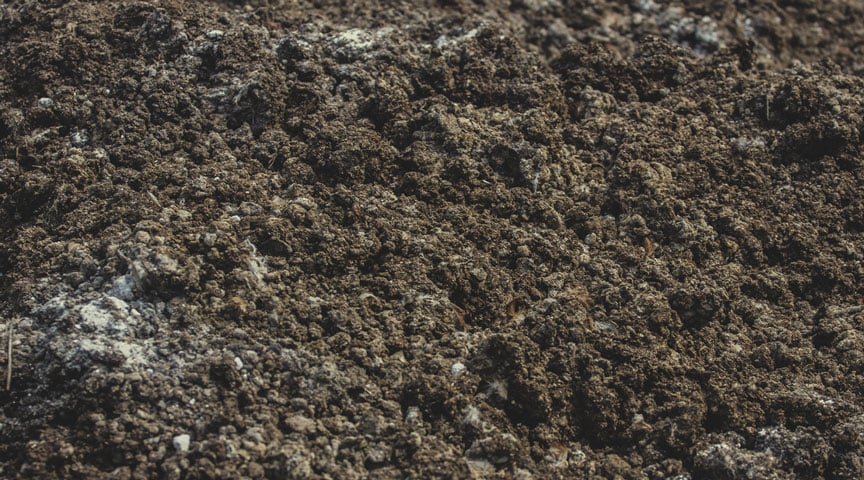
- Rabbit Manure
Rabbit manure is an excellent option for growers who need nutrients fast. Rabbit manure does not need to undergo hot composting, and thus can be added directly to the topsoil to provide nutrients to cannabis plants. Rabbit manure is absolutely loaded with nutrients and contains large quantities of nitrogen, phosphorus, and potassium, along with calcium, magnesium, and zinc.
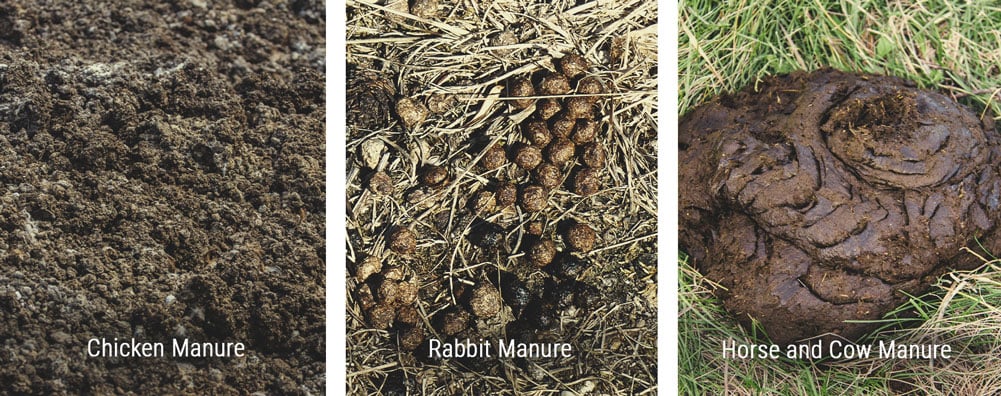

- Horse and Cow Manure
Horse and cow manure contains around 1–2% nitrogen and 1–3% potassium, and works to enhance soil texture and fertility. This type of manure requires hot composting before use due to an increased likelihood of pathogens. Horse and cow manure is sometimes loaded onto garden beds and covered in straw over the winter season to decompose. One disadvantage of horse and cow manure is that it is usually more costly to transport.
You’re also more likely to encounter AP in horse and cow manure. Exercise caution when looking for a source. Read reviews if you’re buying from a bulk supplier, or simply have a chat with a local farmer about their herbicide practices before using horse or cow manure for cannabis.
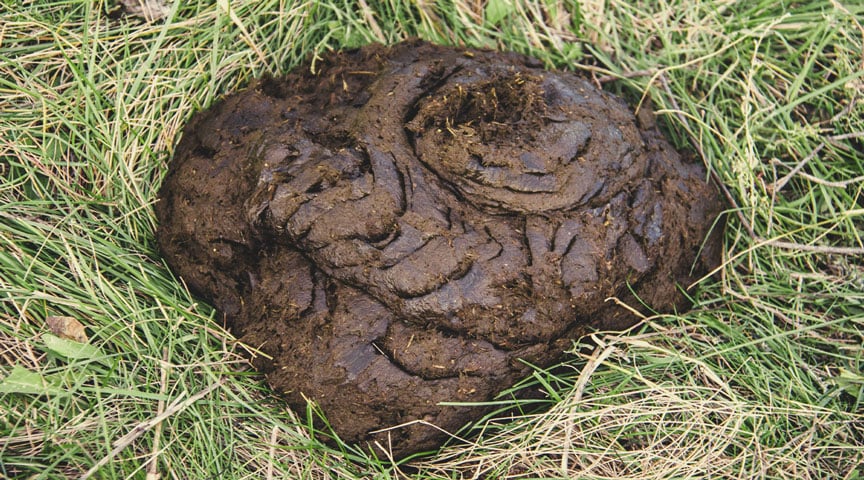
- Pig Manure
Back in the day, many growers used to dig pig manure into their beds and leave it to break down over the winter months. While a viable option in the past, intensive pig raising operations have led to an increase in E. coli, salmonella, and parasites in these animals.
Simply digging pig manure into your beds won’t expose it to the higher temperatures of hot composting. If you obtain fresh pig manure, add it to your compost pile to kill off these pathogens. Alternatively, source well-rotted pig manure from a reputable supplier before spreading it.
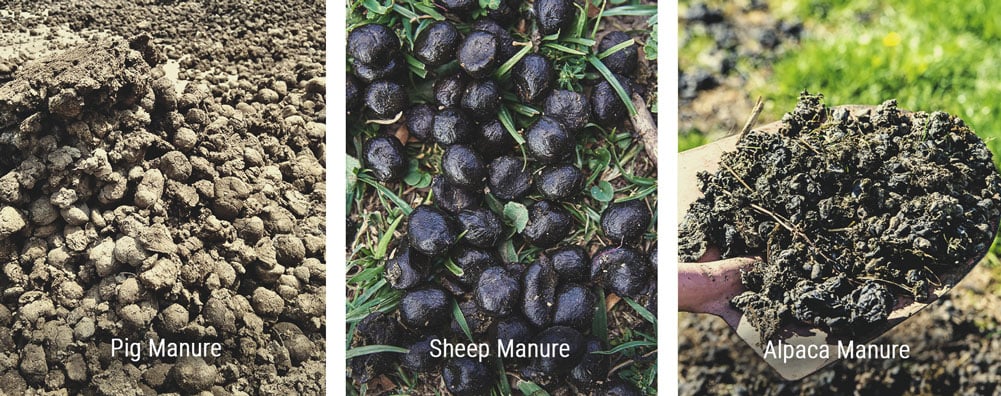
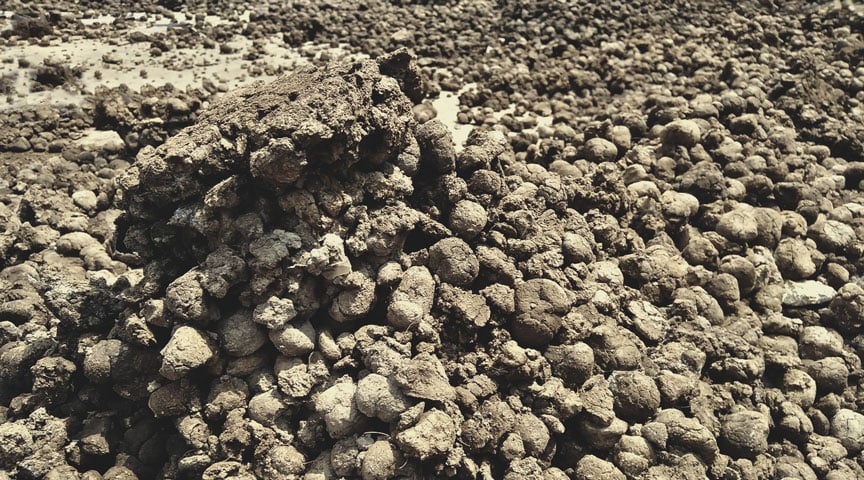
- Sheep Manure
Sheep manure outperforms cow and horse manure in nitrogen, phosphorus, and potassium content. It's also loaded with organic matter that attracts beneficial bacteria. Again, you'll need to compost fresh sheep manure to destroy any seeds and avoid burning your plants.
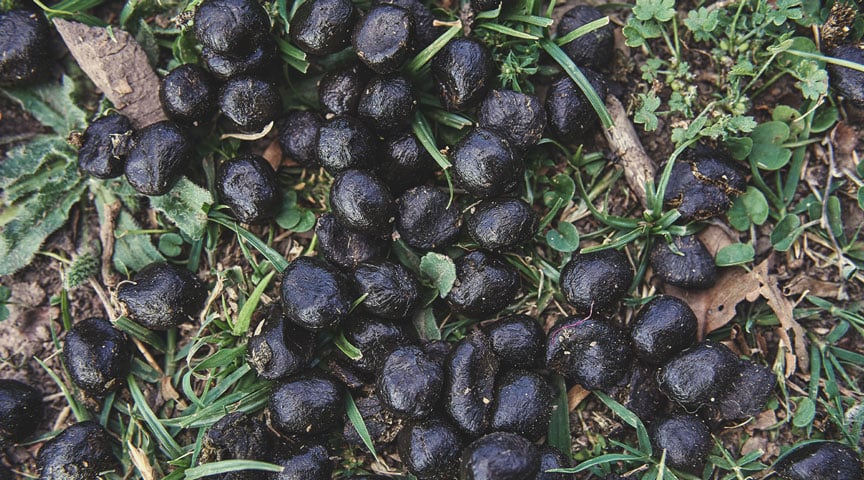
- Alpaca Manure
Alpaca manure offers a good shortcut when you want to fertilise your beds quickly. It’s high in nitrogen and potassium, with average quantities of phosphorus. Although it’s lower in organic matter than other options, growers don’t need to compost it prior to application. Simply spread it directly onto your beds as a top dressing when needed.
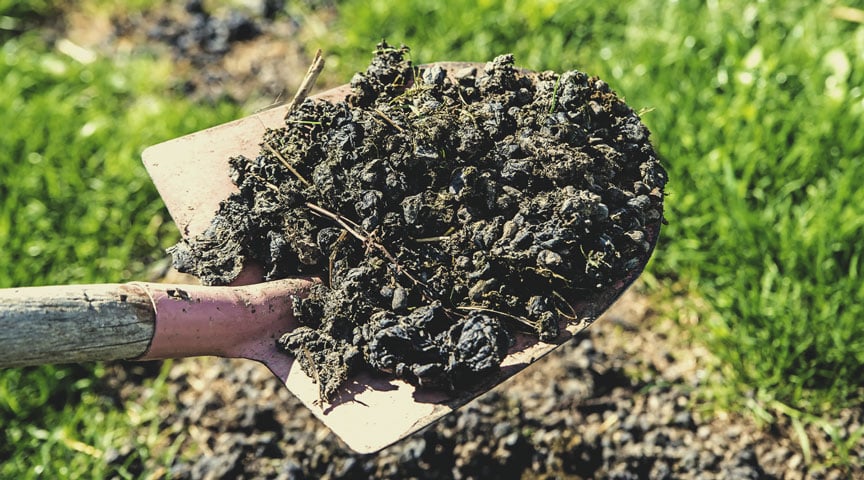
Tips for Growing Cannabis With Manure
Now you’re ready to bring some serious fertility to your garden. By using manure correctly, you’ll grow some luscious marijuana plants and optimise your harvest. Before you head out and start spreading, commit these key tips to memory to help things go as smoothly as possible:
- Spread 9–13kg per 9m² onto your beds during the winter, ready for spring.
- Always vet compost for AP. Carry out a test if you don’t get a clear answer.
- Only use well-rotted manure to avoid burning your plants, with the exception of rabbit and alpaca manure.
- Compost manure with equal parts high-carbon material, such as wood chips and cardboard, to create a thermophilic reaction that generates viable compost.
There you have it! Keep these tips in mind, and your cannabis plants will thank you for it. Happy growing!
- Fertilizing a Garden - How much fertilizer should you use in a garden? https://agrilifeextension.tamu.edu



























